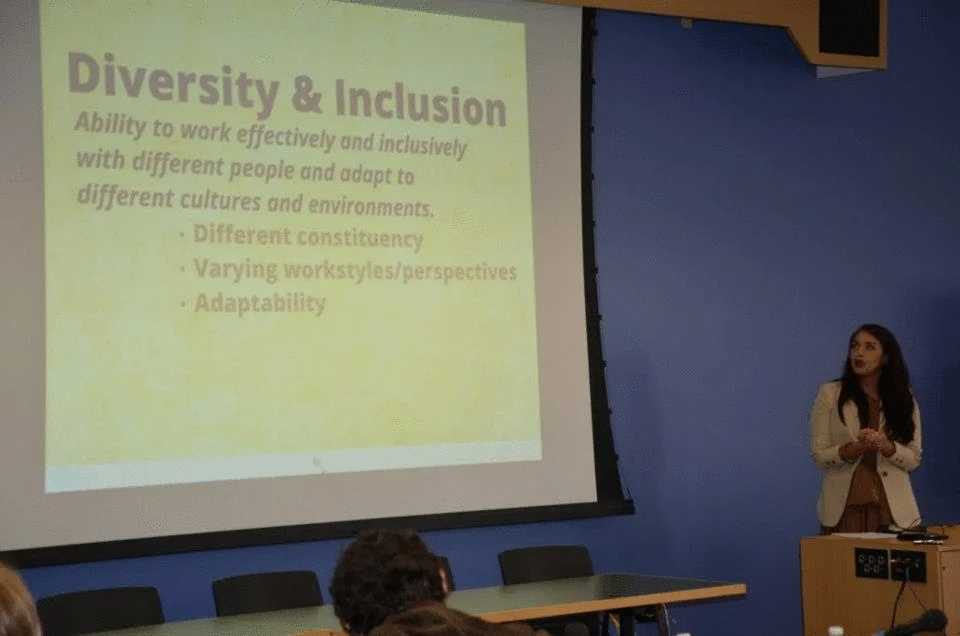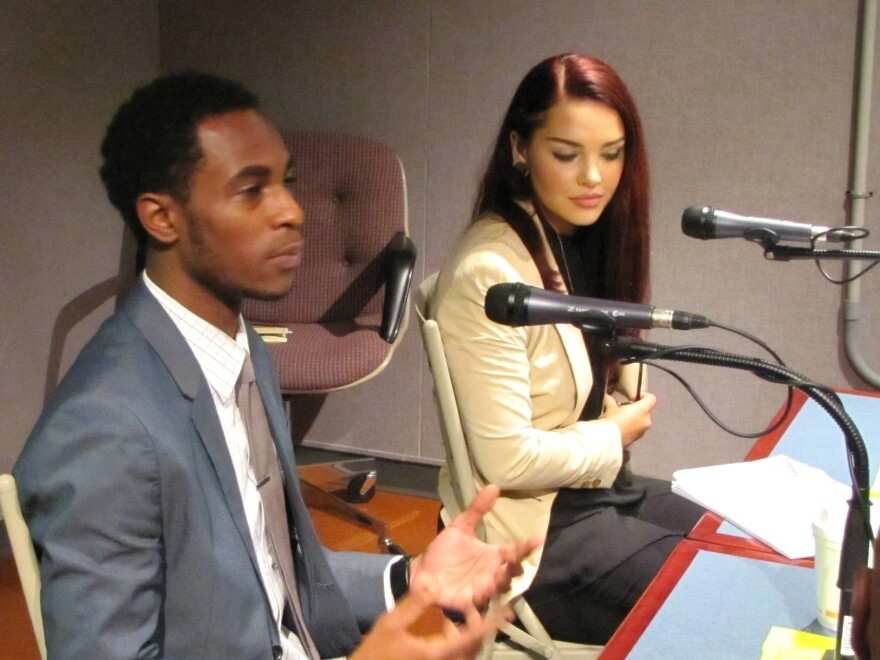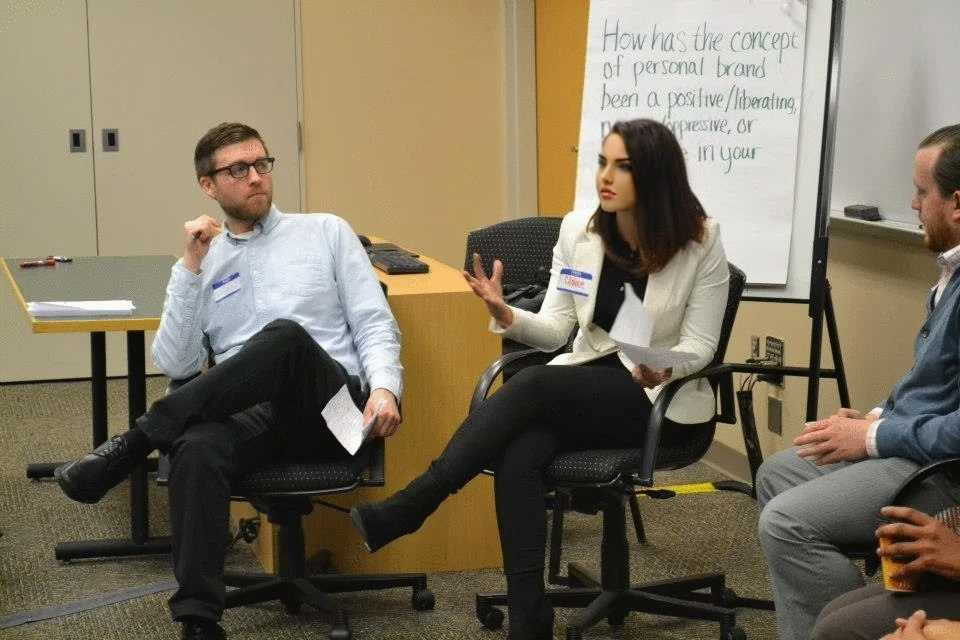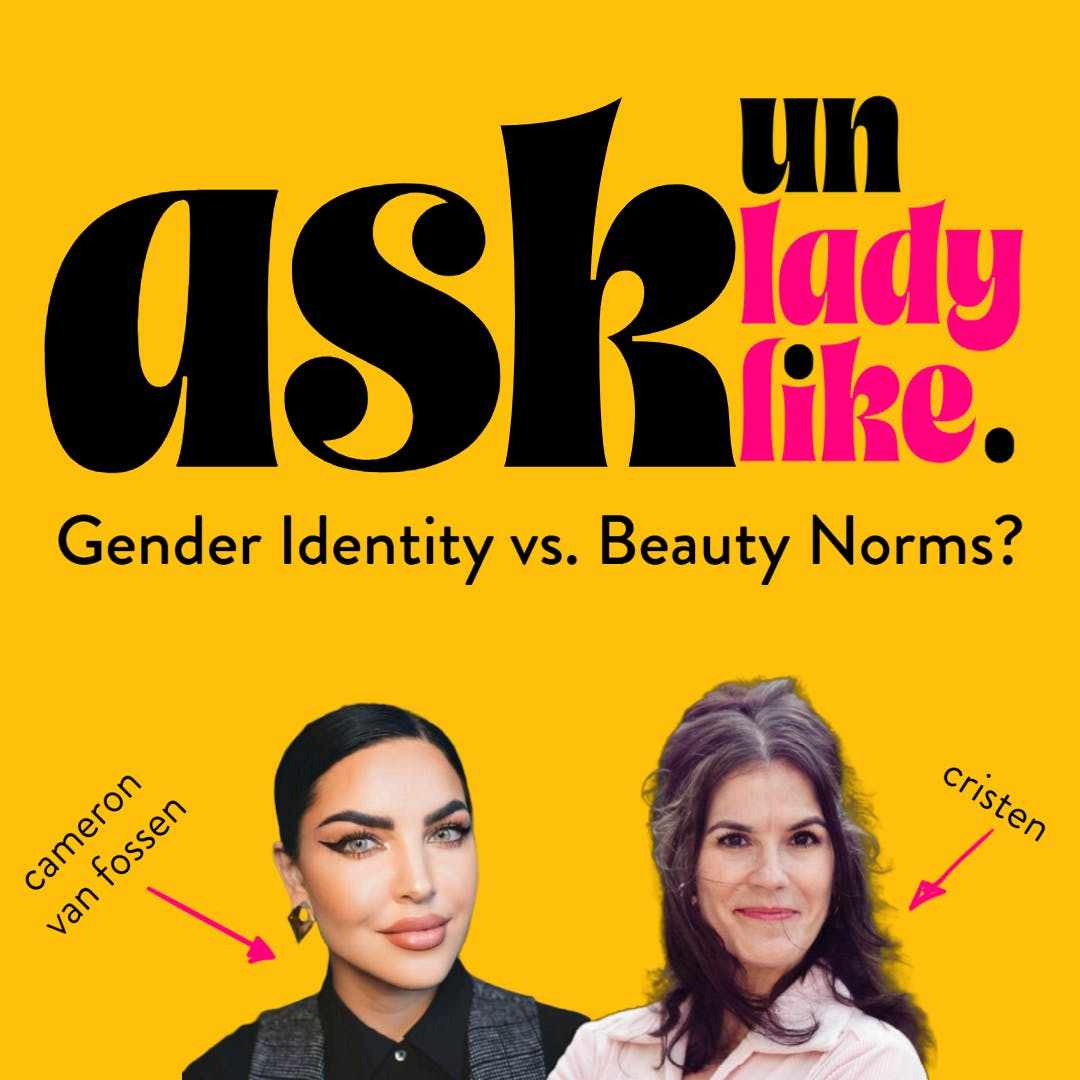We were lucky to catch up with Cameron Van Fossen recently and have shared our conversation below.
Hi Cameron, thanks for joining us today. What’s the backstory behind how you came up with the idea for your business?
Deeper Impact Consulting was born out of a confluence of deep professional experience, personal passion, and a recognition of unmet needs within the nonprofit and social equity sectors. The idea for the business started to form during my years of working in Senior Management roles across various organizations. I saw firsthand the challenges organizations face as they transition from start-up phases to growth stages, particularly in areas like crisis management, fundraising, and organizational culture.
The idea for Deeper Impact Consulting wasn’t just about solving problems—it was about addressing them in a way that put people first. Having spent over a decade working with youth, LGBTQ+, family, and homeless-serving agencies, I realized that many organizations were struggling not only with their external impact but also with their internal dynamics. I knew that bringing a holistic approach to consulting—one that combines both human-centered and business-focused strategies—could make a profound difference.
The logic behind starting Deeper Impact Consulting was clear: organizations needed more than just traditional consulting. They needed someone who could understand the nuances of both the people they serve and the structures that support them. I saw a gap in the market where many consultants offered either a focus on business administration or a focus on human factors, but rarely both in harmony. My unique combination of practical experience, academic knowledge, and a passion for social equity positioned me perfectly to fill that gap.
What got me most excited about this endeavor was the opportunity to help organizations not just survive, but thrive—by aligning their operations with their values and deepening their impact in the communities they serve. I knew this approach was unique because it’s rooted in my own lived experience and professional journey, allowing me to connect with clients on a deeper level and offer insights that are both practical and transformative.
Starting Deeper Impact Consulting felt like a natural evolution of my career and my passions, and I knew it was a worthwhile endeavor because it addressed a real and pressing need in a way that no one else was. The excitement came from knowing that I could help create sustainable, healthy, and equitable environments within organizations, ultimately contributing to broader social and economic equity.

Cameron, love having you share your insights with us. Before we ask you more questions, maybe you can take a moment to introduce yourself to our readers who might have missed our earlier conversations?
I’m Cam Van Fossen (they/them), a nonbinary leader and consultant with over 15 years of experience in the nonprofit sector, specializing in personal development, social equity, and organizational management. My journey into this field started with a passion for social justice and a deep commitment to making a tangible difference in the lives of others. I’ve worked with organizations ranging from $2-15M, particularly in roles that involve crisis and change management, fundraising, and strategic growth. My work has always been driven by a desire to help organizations not just function, but excel in ways that are sustainable and impactful.
Deeper Impact Consulting was born from my desire to address the challenges I’ve seen organizations face firsthand—whether they’re in the midst of growth, dealing with internal crises, or looking to deepen their impact. My services include consulting on all aspects of organizational management, from systems and structures to culture and inclusivity. I also offer speaking engagements and workshops on topics like gender and sexuality justice, board governance, and organizational leadership. Additionally, I provide executive coaching, helping leaders develop their presence, performance, and communication skills, while also supporting aspiring entrepreneurs in market research and business planning.
The problems I solve for my clients are often rooted in the complex intersections of human dynamics and organizational structure. Whether it’s helping an organization navigate a merger, design a capital campaign, or create a more inclusive workplace culture, my approach is always people-first and equity-driven. I bring a unique ability to harmonize the human and business aspects of work, ensuring that the solutions we implement are not only effective but also sustainable and aligned with the organization’s values.
What sets me apart from others in this field is my deep, personal commitment to equity and inclusivity, paired with a wealth of practical experience. I’m not just offering theoretical advice—I’m bringing insights gained from years of hands-on work in the trenches of nonprofit management, combined with academic expertise in Public Administration and Gender Studies. This dual focus allows me to offer a comprehensive approach that addresses both the systemic and human sides of organizational challenges.
I’m most proud of the impact I’ve been able to make through my work, both in terms of helping organizations thrive and in promoting greater equity and inclusion within those organizations. Seeing my clients succeed—whether that’s through a successful fundraising campaign, a more cohesive team, or a more inclusive culture—brings me immense satisfaction. It’s these successes that reinforce the value of what Deeper Impact Consulting offers.
For potential clients, followers, and fans, the main things I want you to know about me and my work are that I’m deeply passionate about what I do, and I’m committed to making a meaningful difference in the organizations I work with. Whether you’re looking to improve your team’s culture, expand your organization’s impact, or simply need guidance on a specific project, I’m here to help you achieve your goals in a way that is both effective and aligned with your values. I love working together with values-aligned organizations to create deeper, more lasting impact in the communities we serve.

Do you have any insights you can share related to maintaining high team morale?
When it comes to managing a team and maintaining high morale, my advice centers around a few key principles: communication, inclusivity, empowerment, and recognition.
1. Prioritize Clear and Open Communication: Good communication is the foundation of any successful team. Make sure that everyone knows what’s expected of them, what the goals are, and how their work contributes to the bigger picture. Encourage open dialogue, where team members feel safe sharing their ideas, concerns, and feedback. This not only helps to prevent misunderstandings but also builds trust and fosters a sense of belonging.
2. Foster an Inclusive and Supportive Environment: Inclusivity is crucial for maintaining high morale. Ensure that every team member feels valued and respected for who they are and what they bring to the table. Create a culture where diversity is celebrated, and different perspectives are actively sought out. This not only enhances creativity and problem-solving but also makes everyone feel more connected to the team and its mission.
3. Empower Your Team Members: People are more motivated and engaged when they feel empowered to take ownership of their work. Give your team members the autonomy to make decisions within their areas of responsibility, and trust them to do their jobs well. This sense of ownership can be incredibly motivating and can lead to higher levels of innovation and productivity.
4. Recognize and Celebrate Achievements: Regularly acknowledging and celebrating the contributions and achievements of your team is essential for maintaining high morale. This can be as simple as a shout-out in a meeting or as formal as an award or bonus. Recognition shows your team that their hard work is noticed and appreciated, which can boost motivation and commitment.
5. Encourage Work-Life Balance: Burnout is a real risk, especially in high-pressure environments. Encourage your team to maintain a healthy work-life balance by setting realistic expectations, promoting flexible work arrangements, and leading by example. When team members feel that their well-being is valued, they’re more likely to stay engaged and productive.
6. Lead with Empathy and Compassion: Understanding and addressing the individual needs and challenges of your team members is key to maintaining morale. Show empathy by being attentive to their personal and professional struggles, and offer support when needed. This can create a stronger sense of loyalty and connection within the team.
By focusing on these principles, you can build a team culture where people feel valued, motivated, and committed to the collective success of the organization. High morale isn’t just about keeping people happy; it’s about creating an environment where everyone can thrive and do their best work.

Let’s talk about resilience next – do you have a story you can share with us?
One story that illustrates my resilience comes from my time as the first professional Executive Director at Y2Y, a youth-led organization serving homeless youth. When I stepped into this role, the organization was at a critical juncture, transitioning from its founders to a more sustainable, professional leadership structure. This transition alone required a delicate balance of honoring the vision and passion of the founders while introducing the systems and processes necessary for long-term success.
However, the real test of resilience came during the onset of the COVID-19 pandemic. Almost overnight, we were faced with the immense challenge of keeping our doors open and our services running in a time of unprecedented uncertainty and fear. The stakes were incredibly high—not just for the organization, but for the vulnerable youth we served.
I had to quickly pivot and lead the organization through a complete restructuring of our staffing model to ensure safety and continuity of services. This involved making tough decisions, reassigning roles, and securing the necessary resources to support our staff and volunteers in an incredibly stressful environment. At the same time, I spearheaded a fundraising campaign that raised over a million dollars in emergency funds in just two months. This was critical to maintaining our operations and ensuring that we could continue to provide shelter and support to our clients when they needed it most.
But resilience isn’t just about surviving a crisis—it’s about thriving in the aftermath. During this same period, I led the expansion of our organization to a second site in New Haven, CT. This involved extensive community engagement, convincing local leaders and residents that a youth-run shelter was not just viable but valuable in their community. Despite facing significant challenges, including construction delays due to pandemic-related material shortages, we were able to successfully open the new site, expanding our impact and ensuring that more young people had a safe place to stay.
These experiences taught me the importance of adaptability, determination, and the power of collaborative leadership. Resilience isn’t just about bouncing back; it’s about pushing forward, even when the path is uncertain, and finding ways to turn challenges into opportunities for growth and positive change.
Contact Info:
- Website: https://www.deeperimpactconsulting.com
- Linkedin: https://www.linkedin.com/in/cvanfossen


Image Credits
N/A


